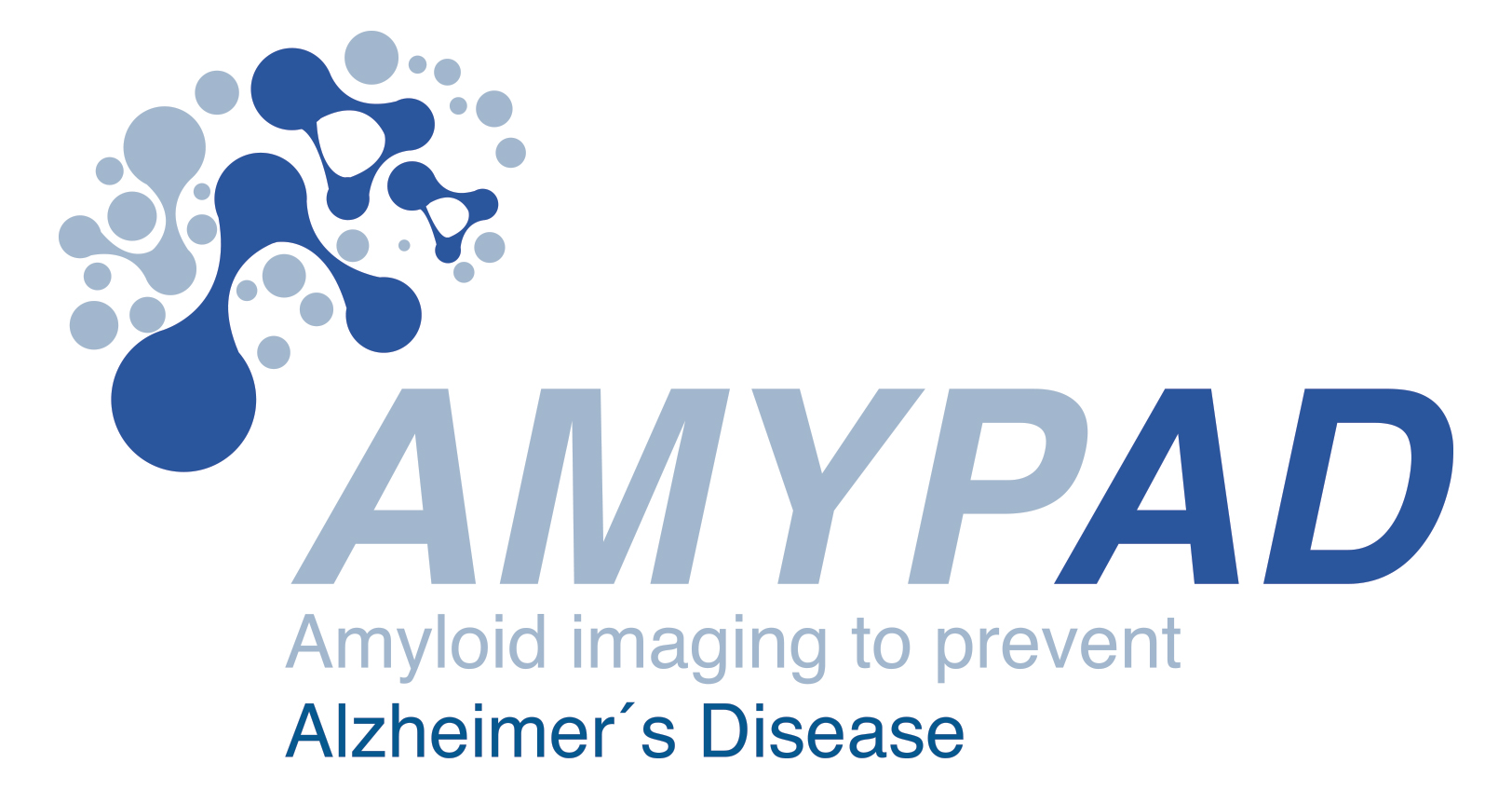
A collaborative research aiming to improve the understanding and diagnosis of Alzheimer’s through the utilisation of β-amyloid PET imaging.
New European initiative to investigate the value of β-amyloid brain scans as a diagnostic and therapeutic marker for Alzheimer’s disease
A collaborative research aiming to improve the understanding and diagnosis of Alzheimer’s through the utilisation of β-amyloid PET imaging.
The members of the AMYPAD initiative today announced the start of a novel research initiative between academic and private research partners to investigate the value of β-amyloid using positron emission tomography (PET) imaging as a diagnostic and therapeutic marker for Alzheimer’s dementia.
Beta-amyloid (β-amyloid) deposition in the brain is one of the neuropathological hallmarks of Alzheimer’s but also occurs in people without the disease. In such cases, the detection of this preclinical phase opens an opportunity for the prevention of the clinical phase of the disease. The recent advent of commercially available β-amyloid PET tracers has opened up new potential for the visualisation of brain β-amyloid and this technology is already being used in hospitals. “We need global multicentric studies to determine the diagnostic value of β-amyloid PET and study how they can contribute to secondary prevention of AD” said Dr. Juan Domingo Gispert, Head of Neuroimaging Research at Barcelonaβeta Brain Research Center, Pasqual Maragall Foundation.
“The AMYPAD Consortium brings together a world-class team of highly synergistic partners from across Europe to form a pan- European network including the most active PET sites. This will ensure effective access to patients and also maximise exposure to technical knowledge and disease modelling. This is a game-changing step in establishing the value of β-amyloid PET imaging in clinical practice”, said Prof Frederik Barkhof, AMYPAD Project Coordinator and Professor of Neuroradiology at VU University Medical Center, Amsterdam and at University College London.
Understanding the value of imaging of β-amyloid using PET provides a unique opportunity to achieve 3 major goals: 1) improve the diagnostic workup of people suspected to have AD and their management; 2) understand the natural history of AD in the pre-symptomatic stage; 3) select people for treatment trials aiming at preventing AD by ensuring a more homogeneous and appropriate enrolment. Through engagement with regulators, the AMYPAD consortium will maximize the value of its findings for pharmaceutical companies, healthcare providers, and patients.
AMYPAD will determine in a real-life clinical setting for whom diagnostic β-amyloid imaging is appropriate, when this is best performed and how the resulting information is influencing diagnostic certainty, patient management and ultimately decision trees and cost-effectiveness of dementia care.
“The development of β-amyloid imaging has been a tremendous research success which allows a more accurate diagnosis of Alzheimer’s disease and a better selection of research participants for ongoing clinical trials. The AMYPAD project will provide much-needed information on the best place of this new technology in everyday clinical practice. Thanks to projects like these, we hope to get closer to our aim of ensuring a timely and accurate diagnosis for all patients.”, said Jean Georges, Executive Director of Alzheimer Europe.
AMYPAD will address the above goals in close collaboration with IMI project EPAD (the European prevention of Alzheimer’s dementia project www.ep-ad.org), a major global initiative to create a novel environment for testing new treatments for the prevention of Alzheimer’s dementia.
“AMYPAD will apply amyloid PET on an unprecedented scale to patients who are suspected to be in the early stages of AD and generate the knowledge to fully integrate PET β-amyloid markers into current clinical practice in a cost-efficient way, by demonstrating its diagnostic, prognostic and therapeutic value from a multi-stakeholder perspective.”, said Dr Gill Farrar, AMYPAD Project leader and Scientific Director at GE Healthcare Life Sciences.
About the AMYPAD Study
Throughout Europe AMYPAD will recruit 900 memory clinic patients and 3100 preclinical or prodromal AD subjects from natural history cohorts. Up to 50% of subjects will undergo dynamic scanning and have repeat imaging, for a total of 6000 amyloid PET scans. In close collaboration with EPAD (www.ep-ad.org), the cohorts will be followed with careful longitudinal monitoring and MRI to determine (surrogate) outcomes of cognitive decline and neurodegeneration.
About AMYPAD
AMYPAD is mainly sponsored by the European Union’s Horizon 2020 research and innovation programme and the European pharmaceutical industry (via EFPIA) under the auspices of the Innovative Medicines Initiative 2 Joint Undertaking. The AMYPAD programme has budget of €27.3M distributed across a total of 15 partners from the private and academic sectors:
· VU University Medical Center Amsterdam
· Barcelonabeta Brain Research Center
· Karolinska Institutet
· Centre Hospitalier Universitaire de Toulouse
· Alzheimer Europe
· University Hospital of Cologne
· Janssen Pharmaceutica NV, part of the Janssen Pharmaceutical Companies of Johnson & Johnson
· Radboud University Medical Centre
· The University of Edinburgh
· Université de Genève
· IXICO Technologies Limited
· University College London
· Synapse Research Management Partners
· GE Healthcare Life Sciences
· Piramal Imaging